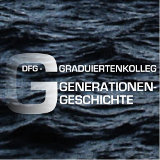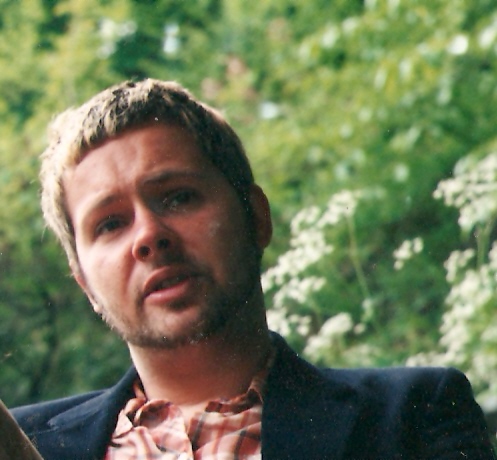Abstracts Tilmann Siebeneichner
Political myths played a crucial part in legitimizing communist rule in the GDR. For the "last revolutionaries" who had politically come to age in the "latent civil war" of the Weimar Republic the assumption that a rifle belonged to every worker was of central importance. Coming from the underground to the heights of political power in the first 'workers-and-peasants-state', the last revolutionaries stayed committed to a conspirative code of conduct which - under the term of "revolutionary vigilance' - was expected from each of its followers. The proletarian myth - as it was represented by the "Kampfgruppen der Arbeiterklasse" (working-class combat groups) - was not simply meant to camouflage the lacking legitimation of communist rule. Rather, it reflected specific biographical experiences of its founding fathers which resulted in a lifetime esteem of quasi-military organization and strength. 'Front' and commitment, the everyday and the 'state of exception' merged in the process of 'constructing socialism' and demanded absolute dedication from every socialist citizen. Against this background the members of the combat groups served as social examples because they represented the socialist citizen both as the main driving force in economic production as well as the political soldier who does not hesitate when it comes to defending his self-created achievements. While for the heads of the state security was always defined against the background of the 'state of exception', secure and stable living- and working conditions were of far more importance within the socialist society. Conflicts between civilian workers and members of the combat groups, between economic and political cadres, but also between local orientations and centralistic demand, point to the shop floor - which is considered to have been the central place of GDR society - where diverse interests met and mingled.
Milieu-specific ties as well as local traditions proved to be of crucial importance for the acceptance of the combat groups within the socialist everyday and highlight individual as well as collective experiences that influenced the adoption of the proletarian myth within the society. The relevance of myths depend on their timeliness: while at first sight the 'peaceful revolution' of autumn 1989 confronted the combat groups with a scenario for which they were once formed it evoked a paradox that lead to the fall of the regime as well as its militia. While rhetorically committed to the values of the underground the combat groups in fact were a mass organization that assembled the values of the (more or less) open society: being a part of the socialist everyday where personal relations proved to be of far more importance than the rhetorics and politics of 'all or nothing' the uncompromising demands of the last revolutionaries found not much understanding within the ranks of its militia. The ritualized avowal of violence indicated a political agenda that still rooted in the 1920s and had increasingly removed from the concerns and realities of everyday existence, showing no interest in the demands and problems of an entire population.
This dissertation project derives from the debate on "Herrschaft und Eigen-Sinn" in the GDR. The concept of the proletarian myth hopes to broaden perspectives on the history of society in the GDR that does not focus on the intentions of the rulers alone but rather highlights the interaction of dictatorial demands, traditional structures, the demands of industrialized societies and the unplanned processes of society.
The ,lost generation‘. Some reflections on the relation of violence and generational demand using the example of the “Kriegsjugend-Generation”
Historians widely agree that those belonging to the so-called „Kriegsjugend-Generation“ – who were born too late to actively take part in the First World War – were dedicated to overcome their historical predecessors – the members of the so-called “Frontkämpfer-Generation” – when it came to the use of violent force. Many also agree that both generations shared a similar self-depiction – being dedicated to collectively fulfill a heroic task – whose adoption and radicalization has being analyzed and consequently characterized as “unconditional” (unbedingt) by Michael Wildt.
In the 1930s, George Bataille coined the term “exhaustion” focusing on an anthropological interest in “vast losses and catastrophes” that went along with “orgiastic” states of mind. Regarding the biographies of such activists as Ernst von Salomon (born in 1902) and his brother Bruno (born in 1900), Hubert von Ranke (born in 1902), Richard Scheringer ( born in 1904) and Bodo Uhse (born in 1904) – who all were originally active in right-wing paramilitary groups, then joined the Communists (Scheringer/Uhse), and later fought in the Spanish Civil War amongst the Republican Forces and/or joined the French Resistance – such orgiastic states of mind seem to have been of significant influence to the endemic use of violence in the modern European Civil War. Literary Sources like von Salomons “Die Geächteten” or Arnolt Bronnens “O.S.“ portray this war as an infinite and orgiastic “land of freedom”. But many historians tend to pay attention to concrete acts of violence only when they are taken as collective expressions for something else. On the contrary, already contemporary witnesses like Helmuth Plessner had noticed that the radicalness of the ,lost generation’ would have welcomed every revolution without fitting to it at the same time because those belonging to the lost generation had – unlike to the will of renewal shared by their fathers – left behind the political extremes in a sense of persistence and progress. But if that is the case, can one still speak about them as a ,generation’? And if so, how can one define the ,unconditional’ that seems to be so characteristic for this generation?
In focusing on the reconstruction of how the use of violence was experienced and legitimized – for this purpose contemporary journals, letters and other ego documents are to be analyzed to find out how activists as the above mentioned integrated their radical experiences into their biographies recurring on generational topics or denying them – this project concentrates on questions belonging to the programmatic interest of the Graduiertenkolleg “Generationengeschichte”. While the “problem of generations” (Karl Mannheim) is commonly interpreted as a problem of emphatic bonding, the “Waldgang” – published by Ernst Jünger in the late 1940s, that is, after the end of the European Civil War – promotes a ,cold’ moment of existential consciousness that not necessarily regards the individual as part of a larger collective any longer. Therefore, this project focuses on the heterogeneous and isolating aspects that may went along with the use of violence in the European Civil War to find out if – and when how – this conflict influenced the devaluation of any possible corporate feeling.
Concerning the characteristic generational self-depiction of this age-group, one may find that the initial point was not the commonly shared impression of massive violence but rather the interpretation and articulation of one’s own violent experiences in the mode of a certain generational speak during and after the war. This generational speak then might have to be understood as a mode of communication that enabled the activists to normalize their violent experiences and to place themselves in the safe haven of an assumed collective experience. Focusing on the violent act as a fundamental feature in the “age of extremes” this project aims at further exploring how belonging to a specific generation was debated culturally and historically and – concerning its intrinsic claim for political and emotional participation – how much impact it unfolded.

